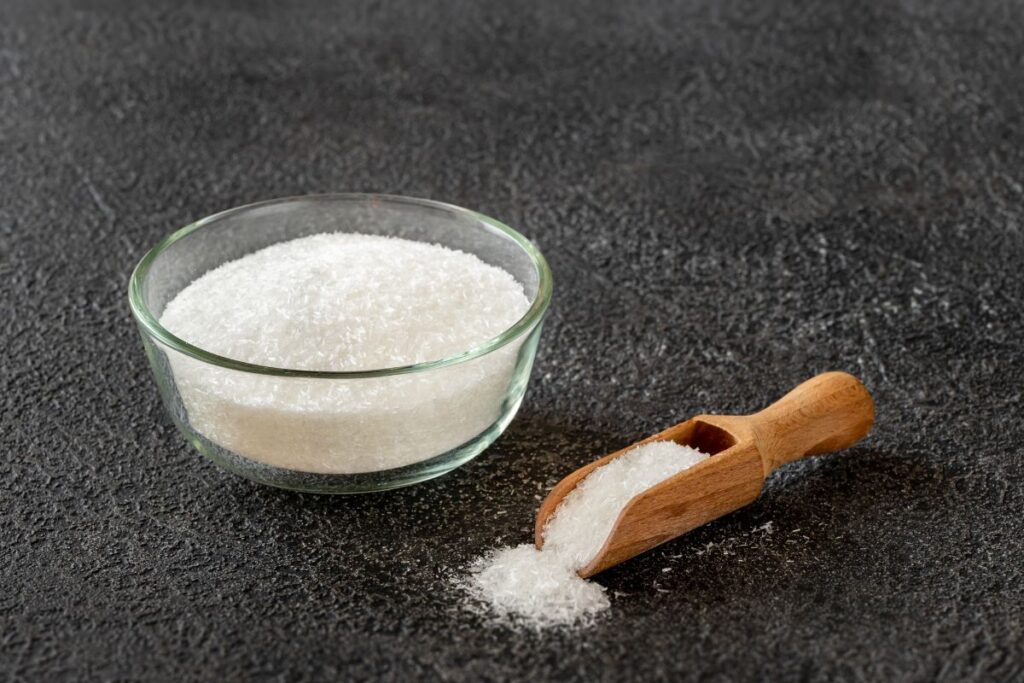Monosodium glutamate (MSG), commonly known as Ajinomoto, is one of the most controversial food additives in the world. While some swear by its magical ability to enhance flavours, others believe it to be a major health hazard. With claims ranging from headaches to long-term metabolic diseases, it’s time to dive deep into the evidence and separate myth from fact.
What is MSG?
Glutamic acid is an amino acid found organically in foods like cheese, tomatoes, and mushrooms, is the sodium salt of glutamic acid, or MSG. MSG is the sodium form of this amino acid. It enhances the umami taste, often described as “savoury” or “meaty.” Although naturally present in many foods, industrially produced MSG is widely used in processed foods, instant noodles, soups, and snacks.
The controversy: Why the Fear?
Origins of Concern
The term “Chinese Restaurant Syndrome” (CRS) was coined in 1968 when Dr. Robert Ho Man Kwok described symptoms such as headaches, flushing, and palpitations following Chinese food consumption. Global concern over MSG’s safety was raised by this report. But these statements have been largely disproved by decades of investigation.
Scientific Evidence
1. Short-Term Effects:
● According to studies, a small subset of individuals may experience mild, temporary symptoms like headaches, nausea, or sweating after consuming large amounts of MSG on an empty stomach.
2. Long-Term Effects:
● Obesity and Insulin Resistance: Animal studies have shown a potential link between excessive MSG intake and weight gain or insulin resistance. However, human studies remain inconclusive.
● Neurological Impact: Glutamate is a neurotransmitter, and there were concerns about its effect on the brain. Yet, research confirms that dietary MSG does not cross the blood-brain barrier in significant amounts.
● Hypertension: High blood pressure can result from consuming too much sodium, which MSG adds to the diet. This is true for all salt sources and is not exclusive to MSG.
3. Global Regulatory Status:
● The FDA classifies MSG as GRAS (Generally Recognized as Safe) when consumed in typical amounts.
● With an Acceptable Daily Intake (ADI) of 30 mg/kg body weight, MSG has also been approved as safe by the WHO/FAO Expert Committee on Food Additives (JECFA) and the European Food Safety Authority (EFSA).
MSG and Pregnancy: Is It Safe?
Pregnant women can safely consume MSG within moderate limits. Overconsumption, however, may raise sodium levels and raise the risk of problems like water retention or hypertension. Pregnant women are recommended to minimize their consumption of processed foods that contain MSG in order to be safe.
Safety Guidelines for MSG Consumption
1. Stick to Safe Limits:
An average adult should consume less than 3 grams per day of MSG.
2. Balance Your Diet:
Pair MSG-containing foods with fresh, whole foods to maintain a balanced sodium level.
3. Recognise Sensitivity:
If you experience symptoms like headaches or flushing after consuming MSG, consider reducing intake.
4. Read Labels:
MSG is often listed as “monosodium glutamate,” “hydrolyzed protein,” or simply “E621” in ingredient lists.
The Real Problem: Processed Foods
MSG by itself is not dangerous; rather, the larger picture of diets heavy in processed foods is. Obesity, diabetes, and cardiovascular problems are caused by the unhealthy fats, carbohydrates, and sodium that are frequently found in these diets.
Conclusion: Is MSG Safe?
The science is clear: MSG, when consumed in moderation, is safe for the vast majority of people. Its safety is supported by regulatory agencies around the world, such as the FDA and EFSA. The reported side effects are few and usually minor. MSG by itself does not provide the same health hazards as excessive consumption of processed foods.
FAQs:
What is the Acceptable Daily Intake (ADI) for MSG?
The ADI for MSG is 30 mg/kg body weight, which translates to about 2-3 grams per day for an average adult.
Can MSG cause cancer?
No evidence supports the claim that MSG causes cancer. Regulatory agencies worldwide have deemed it safe.
Why do some people feel sick after eating MSG?
A small group of people may experience mild symptoms like headaches or nausea, often referred to as MSG Symptom Complex. These effects are temporary and not dangerous.
Is MSG safe for children?
Yes, MSG is safe for children when consumed in moderate amounts. However, it’s better to limit processed foods overall for better nutrition.
Does MSG lead to high blood pressure?
Consuming too much MSG might raise blood pressure because it includes sodium. It’s important to consume salt at the prescribed levels.
Disclaimer:
This article is for informational purposes only and does not replace professional medical advice. Always consult a doctor for personalised health concerns.
How Can HealthPil Help?
If you’re unsure about your diet or experiencing symptoms like headaches or nausea, HealthPil can connect you with expert doctors for online consultations. Get the right advice on MSG consumption, dietary concerns, and overall health management—all from the comfort of your home. HealthPil – Trusted Health Advice, Anytime, Anywhere.

